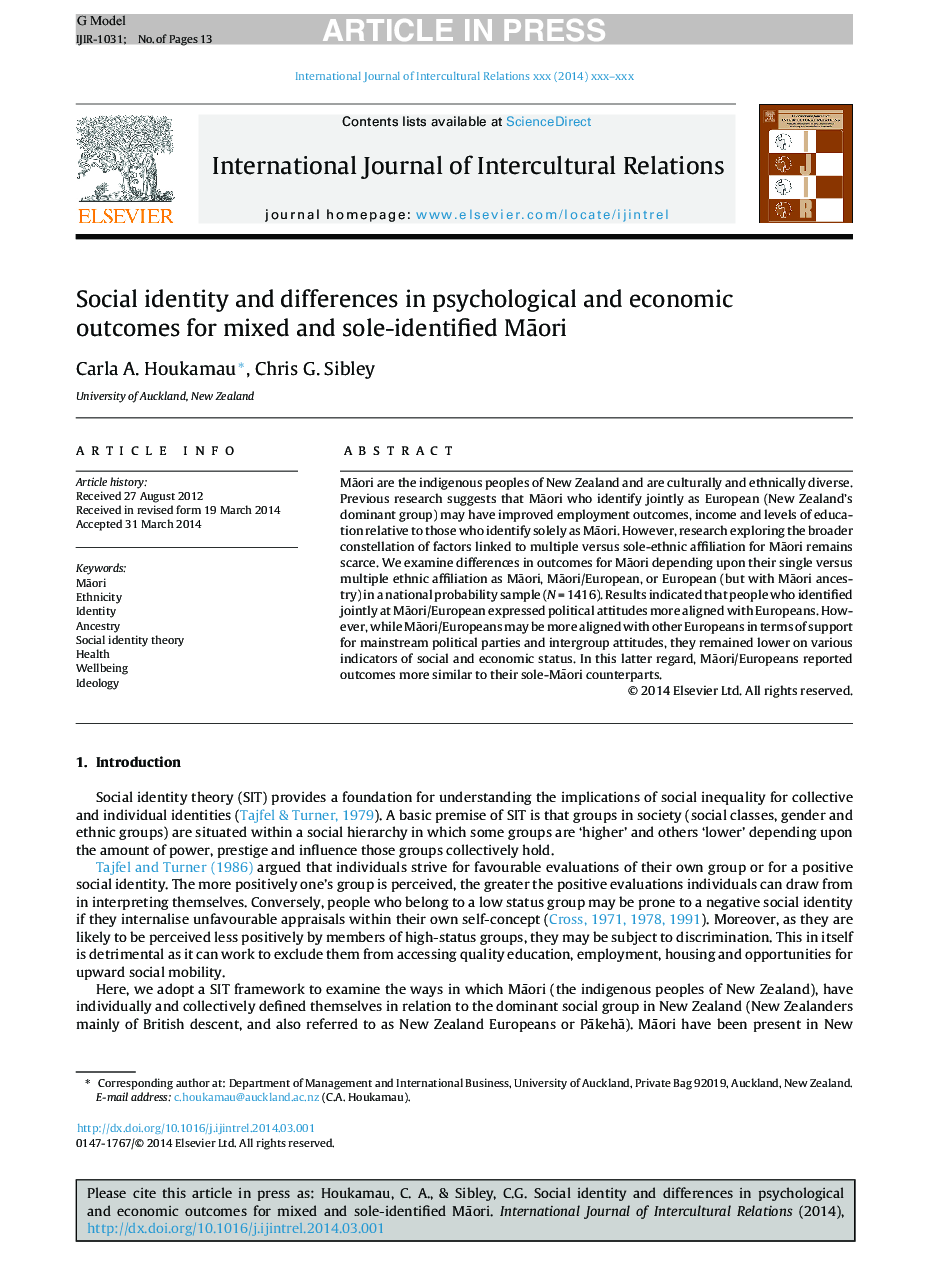| Article ID | Journal | Published Year | Pages | File Type |
|---|---|---|---|---|
| 947081 | International Journal of Intercultural Relations | 2014 | 13 Pages |
Abstract
MÄori are the indigenous peoples of New Zealand and are culturally and ethnically diverse. Previous research suggests that MÄori who identify jointly as European (New Zealand's dominant group) may have improved employment outcomes, income and levels of education relative to those who identify solely as MÄori. However, research exploring the broader constellation of factors linked to multiple versus sole-ethnic affiliation for MÄori remains scarce. We examine differences in outcomes for MÄori depending upon their single versus multiple ethnic affiliation as MÄori, MÄori/European, or European (but with MÄori ancestry) in a national probability sample (NÂ =Â 1416). Results indicated that people who identified jointly at MÄori/European expressed political attitudes more aligned with Europeans. However, while MÄori/Europeans may be more aligned with other Europeans in terms of support for mainstream political parties and intergroup attitudes, they remained lower on various indicators of social and economic status. In this latter regard, MÄori/Europeans reported outcomes more similar to their sole-MÄori counterparts.
Related Topics
Social Sciences and Humanities
Business, Management and Accounting
Business and International Management
Authors
Carla A. Houkamau, Chris G. Sibley,
